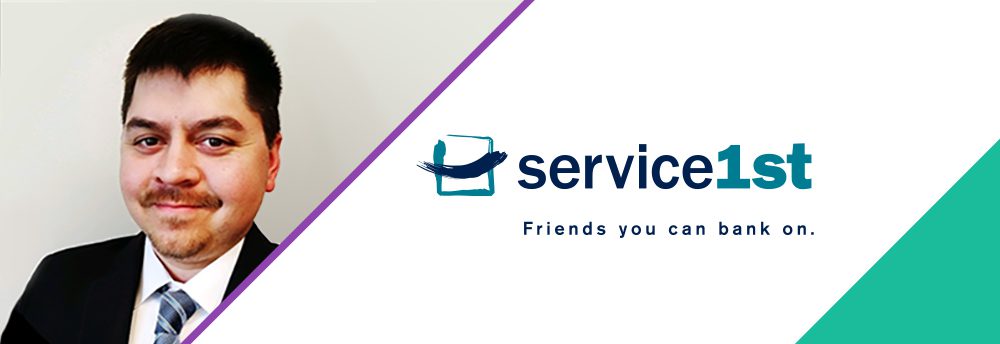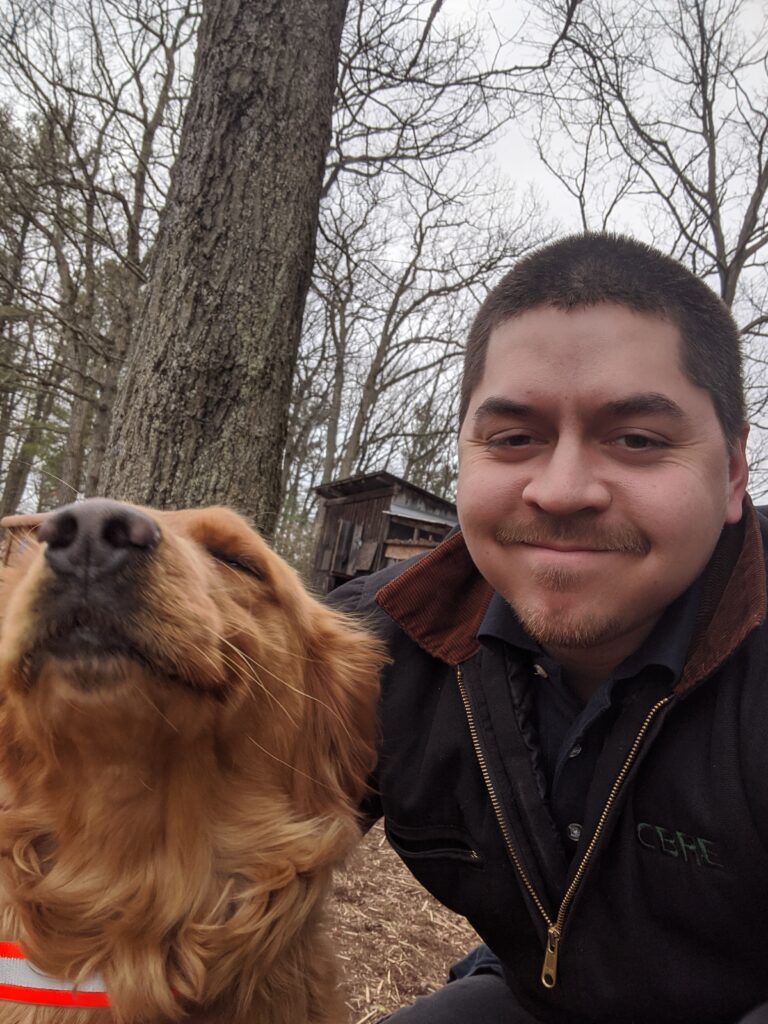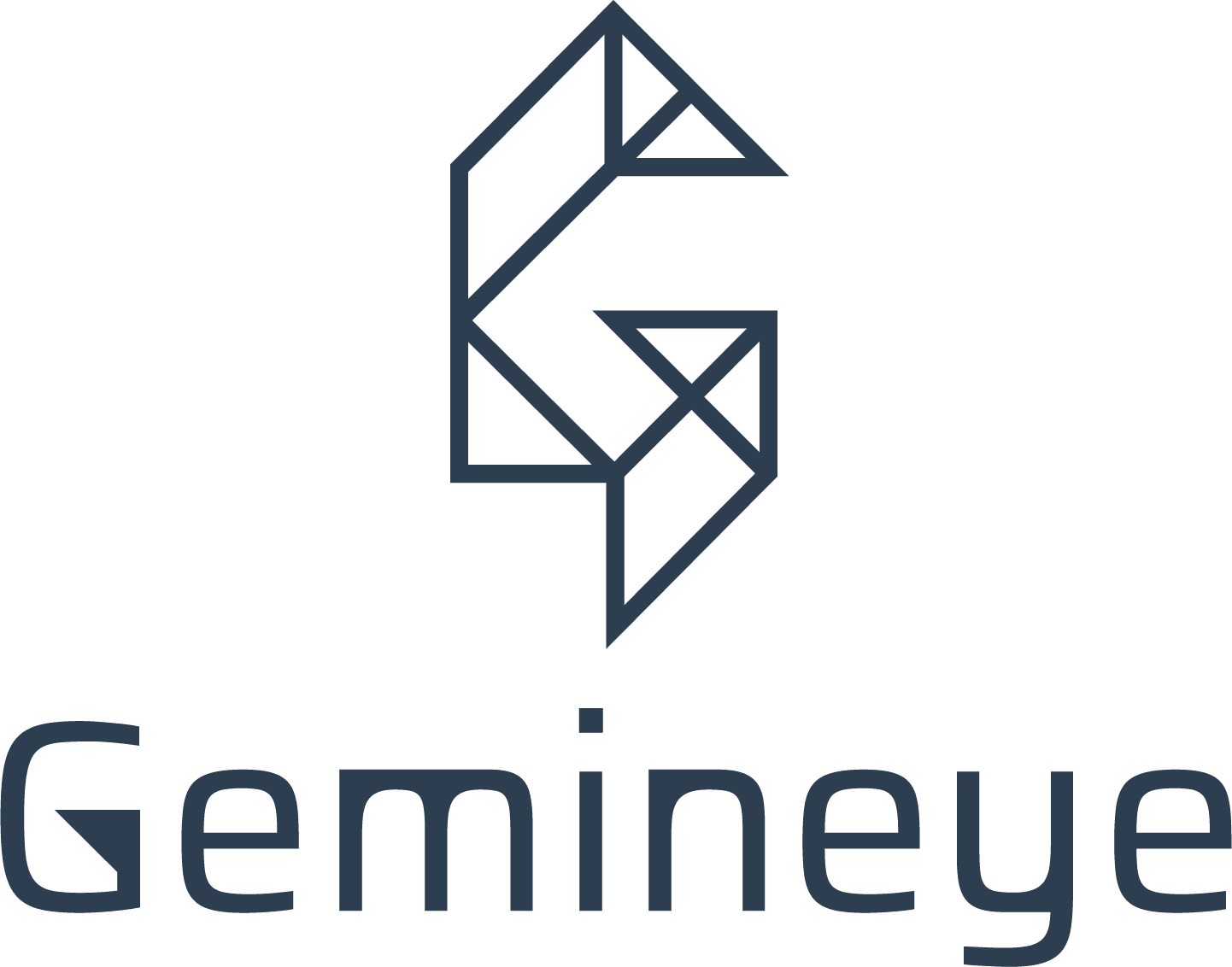
In this edition of “A Day in the Life of a Data Analyst,” we talk with Israel Spence, Data Analyst at Service 1st FCU. Israel is a veteran and a self-taught programmer and analyst, who honed his skills while working in multiple roles and experimenting with data in his free time. His journey is a great example of a non-traditional path towards working in data and we commend his discipline and hard work.
Service 1st FCU is a $650M organization based in Danville, PA, with 11 branches around the central Pennsylvania area. Still relatively new to Service 1st himself – and managing several new team members – Israel has his hands full. Interviewed by Alicia Disantis, Brand Strategist at Gemineye, Israel talks with us about his unique journey, juggling multiple responsibilities, and his love of investigative work.

Learning the Ropes
Alicia Disantis: What got you interested in data analytics, specifically data analytics within credit unions, and what do you find most rewarding about this career path you’ve chosen?
Israel Spence: Data analytics for me was just a natural progression because at my last job, I was part of the staff in charge of maintaining the building management systems. They control the lighting, the heating, the cooling, automatic doors…all that stuff. We would help other technicians remotely troubleshoot the different systems, so we would pull reports on different pieces of equipment and look for issues to help point them to the right piece. We could see issues like discharge temperatures slowly dropping over a period of weeks or the energy state remaining on for too long.
That role had a lot to do with moving into this career. It was a lot of the same type of work, you’re looking for trends in historical information and making judgments based off reporting. Also, at that same job, I made a visit to our corporate headquarters and met a woman who was a lead project manager. She lived in data and reporting. I talked with her at length about what she did, and it seemed like a really cool job.
And at that point in my life, I already messed around with Python for personal use and web scraping. I was already doing a lot of that type of stuff in my day, working with data and looking for trends. I am more self-taught than anything. I did take a boot camp that the VA paid for ex-military. I still had some VA bucks leftover, so I took that and that was helpful to give me some guiderails on the type of skills I should be looking at.
And as far as the credit unions go, I think my first good experience with a credit union was Navy Federal Credit Union. So sorry Service 1st FCU, but you know, I was a fresh haircut in North Carolina. They helped me get my first car. They give me a great rate, you know? That’s what credit unions just do. I worked at the same bank since 2016, so I was very much used to the terminology, type of projects, and information. Finding this position and getting hired for it was really fulfilling for me.
The rewarding part in this job is when I can deliver the type of information that makes people sit down to their chairs or just immediately take the info and leave mid conversation. ‘How did we not know this?’ I just love getting those ‘aha’ moments from people.
Alicia: From what I’ve heard from other folks, the discovery component of it and the investigation is very fascinating. So that’s cool to hear that from you too. You’re ex-military, you’re a veteran. Thank you for your service.
Israel: It was my pleasure. Yeah, different lifetime ago.
Alicia: What are some challenges within this career, various learning curves and things like that?
Israel: One of the challenges for me was really being able to prove to an employer that I can do this kind of work. I’m not coming from a computer science or data science background or degree, I’m coming from the self-taught route so it’s tough. You can make a portfolio and show people the type of stuff you can do, but I feel like it really doesn’t carry the weight that somebody coming fresh off a degree program has. I’ve got a two-year and four-year degree in tech and management. So that probably helped too, but the biggest challenge was really just getting people to take a chance on you.
Right Place, Right Time
Alicia: Have you had any luck or any opportunities that were thrown your way to get where you’re at? Sometimes you just meet the right person or are in the right place, right time.
Israel: Yeah. I got hired by CBR E as a facilities technician and meeting my one facilities manager has been probably the best thing for me. He’s the type of person that just can’t help but want others to succeed and was always sending me new jobs and information. And he helped me get into the building management systems at the old job and that really got me into working with data. And I feel like getting to where I am now wouldn’t have happened without him.
Oh, and definitely thank you Service 1st FCU for giving me this opportunity too.
Alicia: How long have you been with them?
Israel: Since August, pretty new.
Alicia: That’s exciting! So I’m going to go off topic a little bit and chat about that. What are some experiences you’ve had being a data analyst in a new environment and learning the operations and the nuances of a credit union.
Israel: It’s been a bit of a whirlwind. We had a data analyst on the team when I started, but he went on to go work as a data engineer for another place and I hated to see him go, because I was still so fresh. I was still working on getting access to all the systems. I didn’t have a password for everything yet. I think that was a big challenge for me – understanding all the different systems that we’re using. We’re not 100% automated and pull in our information from different places.
Having the department to myself for the past two to three months has been challenging. Trying to understand where everything is, where the information is when people ask for different things, especially being new in the role you don’t have those people that you know to go to for the information yet is hard. Finding those people who can help provide that domain knowledge really makes a big difference. I lucked out that my boss used to be our financial analyst and our transformation coordinator, which I call her our business analyst. Find those experts and make sure you’re on good terms with them.
A Typical Day at Service 1st
Alicia: Walk us through a typical day. I don’t know what that means for you or if there’s such thing as a typical day!
Israel: It’s kind of 50/50 for a normal day – it’s either completely normal or it’s chaotic. The first thing I do is put on noise-cancelling headphones and I turn on some music. I work in a shared space and there are eight people around me, so it can get loud and distracting. Noise cancelling headphones help me concentrate. The first thing we’re doing, besides checking emails, is checking the ETL logs, checking our missing data reports, and making sure the overnight information came in ok.

After that, I’m checking my log from yesterday. It’s like a like a short journal with line items. It outlines what I worked on the day before, I did this for this person, this for that person. You know, you get to the end of the day and you just brain dump.
There are a mix of meetings with different staff, asking questions about the requests that they sent us or asking us for new variation. We’re trying to understand how they’re going to use the information from the request. Is this just a one-off request or if this is something we should put in Tableau? If that’s the case, then we can get the data source updated automatically using Tableau and then that’s helpful for everybody.
We also have two new people on the team as of March. I spend time helping the new team understand all the different systems we’re in, where to get information, and the people that you can ask if you have any questions. But having people back on the team has definitely allowed me to catch up on work.
Alicia: What’s an example of something that recently staff has asked for?
Israel: Our auditing department keeps track of certain transactions and they’ve been using automated emails, but they’re having to do a lot of manual scrubbing. They’ll get a report every day and 60 to 80% of it they’ll filter out anyway. Then, they’re copy/pasting those lines that they want into a running Excel spreadsheet. They came to us and asked if we could get them the filtered transactions for the monthly roll-up because they were using so many man hours. We’re asking them for more details on the types of transactions to begin to really zone in on those specific types and not give them noisy information.
One of the big projects right now is that we have some new software that we’re going to be responsible for on the back end of managing. There’s a lot of implementation meetings for this project.
Sometimes, people will show up and just ask, ‘Can you make this Excel worksheet do this?’ We’ll have random Excel formula requests, and they’re not super time consuming, so we’re glad to help with anything to help save on those man hours.
Alicia: Do you have people do the ‘knock knock knock’ on your wall when they want something? I worked in a place where I didn’t have an office and just a shared cubicle space like you have. And there was no place to knock because it was a felt wall. So people would just do the movement with their hand and just say ‘knock, knock knock.’
[Laughing]
Israel: I have my nose-cancelling headphones on all the time, so people will have a full conversation with me, and I have no idea! I like I tell people, ‘Just tap me on the shoulder, throw something at me.’ They’ll reach all the way over and try to knock in front of me, just to get ahold of me! I like to put on my status headphones on. Just call me or text me.
Alicia: And who do you report to?
Israel: My boss, Chris [Court] is The Innovation and Strategy Officer, which is different from other credit unions, where the data team reports to the CFO. Chris mentioned that the credit union structured the department like this on purpose because the previous data analyst worked for the CFO, and they were talking about moving us into IT or information security. Leadership thought it would be limiting in what we were going to do if we were working under Finance, because they look at information differently.
Alicia: How do you and your team meet?
Israel: The meetings are very informal. We are all in those cubicles in an L shape and we’ll spin our chairs around and talk to each other right there. We have a Zoom and a Teams chat that we’re always dropping stuff into, so communication wise, we are always on the same page. We do have a Microsoft planner that we’ve started using for recurring items, like if we have a report that we have to push up, we build a web scraper and somebody has to physically push the button to start it. That’s been helpful for keeping us all on track for those random items.
We meet with our boss once a week or every other week. On those days, we head upstairs to his office. He’s got a round table up there and we all sit around it and catch up on everything.
Deep Dives
Alicia: When you have time aside from the day to day and answering questions and discovery, is there anything you’re working on that’s more strategic or a passion project?

Israel: When I first started, I had more time to do strategic work, since there was another data analyst. Once he left, it’s kind of just been survival mode. Right now, I am juggling tasks and helping two new hires get up to speed and more independent. I’d love to get back into strategic work. There are some metrics that we don’t have yet, like member lifetime value. I want to look at how much was spent to bring on a customer compared to how much value we’re estimating to get from them by the end of our relationship. But we don’t have the whole picture yet. Bringing the different systems together to get this information has been challenging. We’re hoping to migrate to the cloud mid-year, so hopefully that will help us with consolidating data.
Alicia: How do you prioritize requests if you have three different people and different departments asking you for things, since it’s just been you for a while?
Israel: I always like to ask people when we start something, besides understanding the scope of the project and looking at where the information is coming from, ‘What’s your timeline on this?’ People are usually either conservative or extremely aggressive. ‘We need it in a month,’ or ‘I really need this today.’ After understanding their expected timeline, I’ll look at the type of project. If it’s more strategic in nature, I’ll try to work on those first, like if it something that’s going to affect our OKRs or KPIs. If it’s just more of an efficiency type of request – we mentioned the certain transactions the accountants are manually pasting – that’s something that they’ve been doing it for a while and it’s ok if it waits a little longer until we get this other stuff out the door.
Alicia: What kind of music are you listening to during the day?
Israel: It’s going to vary wildly depending on the project. I’m a 90s and 2000s rap guy but I like the new stuff too. I like Logic, J. Cole. But then at the other side, if it’s a rushed kind of day, I’ll be listening to like Parkway Drive or As I Lay Dying, stuff that’s more metal in nature. Some days it’s just beats. I’m playing instrumentals. I’m playing electronic dance music. Just something that keeps your brain moving.
Alicia: What’s something you wish you knew about having a career in data?
Israel: Data cleanliness is everyone’s job. If you see something funky, say something. It doesn’t matter if you’re data team data engineer or frontline staff.
Alicia: Last question, what’s something you could spend all day doing?
Israel: My coworker Jen [Watts], the business analyst who I mentioned earlier, she always tells me I am a squirrel. I call it ‘pulling on strings.’
You’re working on pulling information for a project and you see something that doesn’t feel like it matches the rest, and it scratches that part of your brain that you must look at it. I love following those trails, even if it just results in a dead end. I would spend all my time following those if I could. Why does it look different? Is it important? Does it change anything for us?


